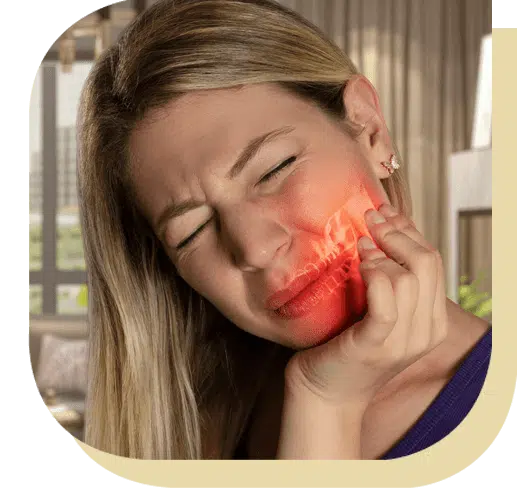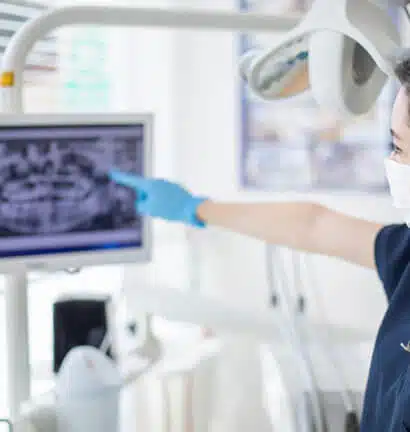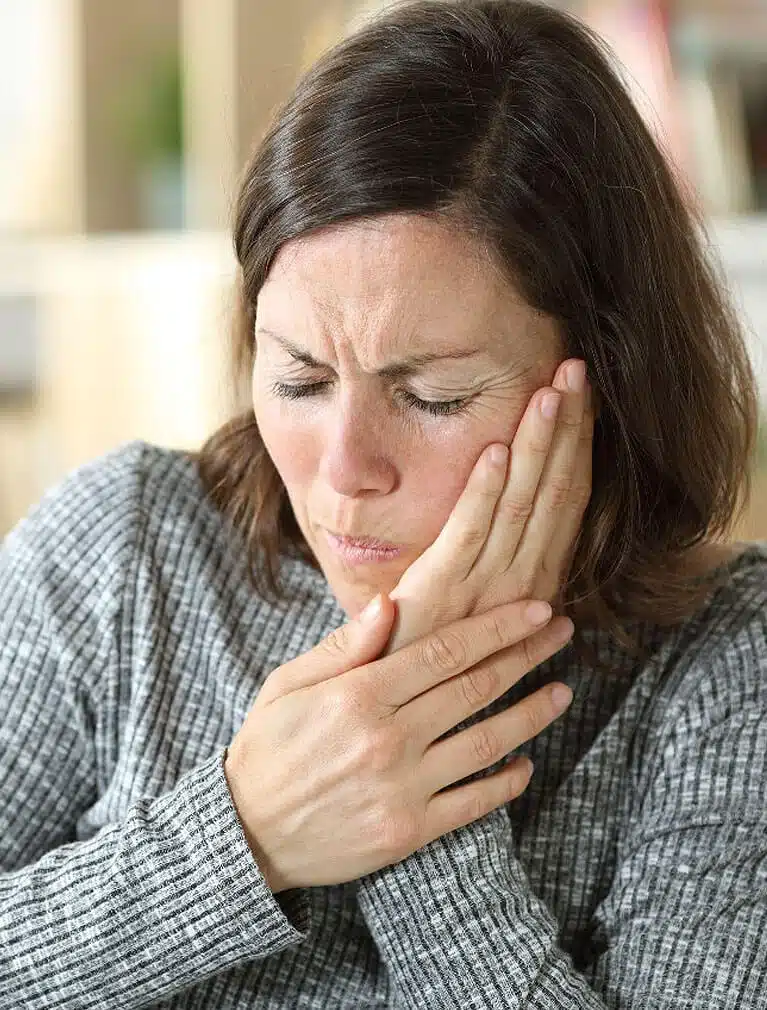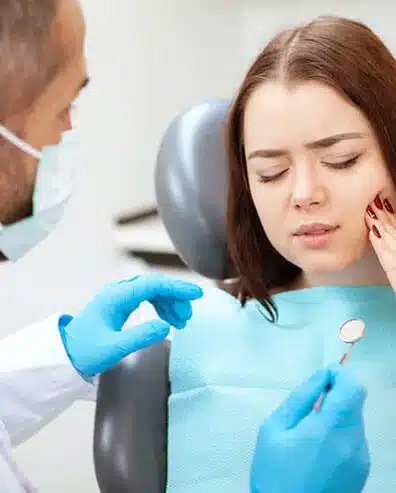TMJ Treatment
We Can Help Relieve the Pain of TMJ!

- M W
5.0

TMJ Treatment in Round Rock, TX
Serving the Round Rock, TX community
When you wake up in the morning, do you experience a sore jaw or headache? Has your partner taken to sleeping on the sofa because of loud snoring, clicking, or popping sounds while you sleep? If so, you may be grinding your teeth and dealing with the symptoms of TMJ disorder or TMD.
In some cases, these symptoms can be so severe that they severely diminish your quality of life. But like many patients who visit our Round Rock dental office to talk about their symptoms, you may not be aware that the symptoms of TMJ can often be treated by a qualified dental professional.

- How are TMD and TMJ different?
- Why does the TMJ become painful?
- Who is at risk for TMJ?
- How can I tell if I have TMD?
- How do you diagnose jaw joint problems?
- How are TMJ problems and teeth grinding related?
- What is the recommended treatment?
- How does a dentist treat TMD?
- Why is TMD worse at night?
- Does insurance cover TMJ treatment?
- My jaw hurts, and I need relief. How do I get started?
How are TMD and TMJ different?
People use the terms TMJ and TMD without distinction, but they are two different things:
- TMJ is the acronym for “temporomandibular joint,” the joint bridging your jaw (mandible) to your head, and it controls movement. You can feel these joints working when you place your fingers in front of and slightly below your ears and move your jaw through speaking or chewing.
- TMD stands for Temporomandibular Joint Disorder, which is a collection of problems, often painful, that are associated with dysfunction of the TMJ and surrounding muscles.
Why do the TMJs become painful?
Your TMJ (jaw joints) controls the up and down and side to side movement of your jaw, and are one of the most continually used joints in the facial region. They function both as a hinge joint and a gliding joint and allow proper function by working together with the ligaments, cartilage, muscles, and your jaw bone.
Just like any other joint, however, the TMJ becomes fatigued when it’s overworked, especially when it’s not functioning correctly, to begin with. Since the joint doesn’t get much chance to rest and recover, this overuse causes the painful symptoms that we call TMD.

Who is at risk for TMJ?
- Arthritis or disease that affects joints
- Teeth grinding or bruxism
- Injury to the head or jaw
- Malocclusion (bad dental bite)
Give us a call to schedule your next appointment.
How can I tell if I have TMD?
- Frequent headaches
- Tender jaw muscles
- Ringing in the ears
- Earaches or pain around the ear
- Difficulty opening or closing your mouth
- Sensitive teeth
- Clicking or popping in the jaw
- Pain when you yawn or chew
How do you diagnose jaw joint problems
- Tenderness
- Clicking or popping sounds
- Range of motion
- Signs of bruxism
- Poor tooth alignment
How are TMJ problems and teeth grinding related?
People who suffer from TMD experience a number of annoying and painful symptoms, such as headaches and neck or shoulder pain. Other indications of TMJ include joint noise like clicking or popping when you’re moving your jaw. Another common symptom is teeth grinding or bruxism.
When TMD occurs, the excessive force that’s placed on your jaw joint by teeth grinding can cause erosion and wearing of dental enamel that creates uneven surfaces on the teeth. These uneven surfaces, in turn, create an unbalanced bite that puts even more stress on the temporomandibular joint.
At Old Settler’s Dental, our doctors will work with you to diagnose the problem and recommend suitable treatment. We can create a removable night guard (or splint) that will help move your jaw into the proper position. In most cases, treatment relieves symptoms and promotes healing of the joint.
What is the recommended treatment?
TMD is a complex disorder, and it is often difficult to pinpoint the exact problem. So, in most cases, TMJ problems are often managed rather than cured.
Here are a few approaches that we recommend to our patients to help them find relief:
- Over-the-counter anti-inflammatories like ibuprofen
- Muscle relaxants prescribed by your doctor
- Corticosteroid or BOTOX®injections
Non-drug therapies often involve:
- Physical therapy
- Oral splints or occlusal guards
- Relaxation therapies and dealing with stress
How does a dentist treat TMD?
At Old Settler’s Dental, we tend to take the approach that “less is often best” when managing TMD.
If your pain is the result of teeth grinding or clenching, our doctors can fit you with a customized, FDA-approved device that sits comfortably over your front teeth. It works by balancing your dental bite and relieving the pressure on your jaw joints so they can rest and recover.
You may also find relief by applying heat or ice packs to the area. TMJ pain that’s related to stress can also be managed by making some lifestyle changes:
- Avoiding chewing gum or foods that cause symptoms
- Avoiding exaggerated jaw movements
- Try relaxation techniques like meditation to minimize stress

Why is TMD worse at night?
One of the causes of TMJ pain is teeth grinding or clenching. While stress is a common cause of teeth grinding, it may also be the result of an unbalanced dental bite where your teeth don’t correctly meet when you close your jaw.
Grinding your teeth can occur anytime, especially in stressful situations. However, many people grind their teeth while they sleep without realizing that they’re doing it. The first sign that you’re grinding your teeth is often pain in the jaw joint, headaches, or sensitive teeth upon waking.
